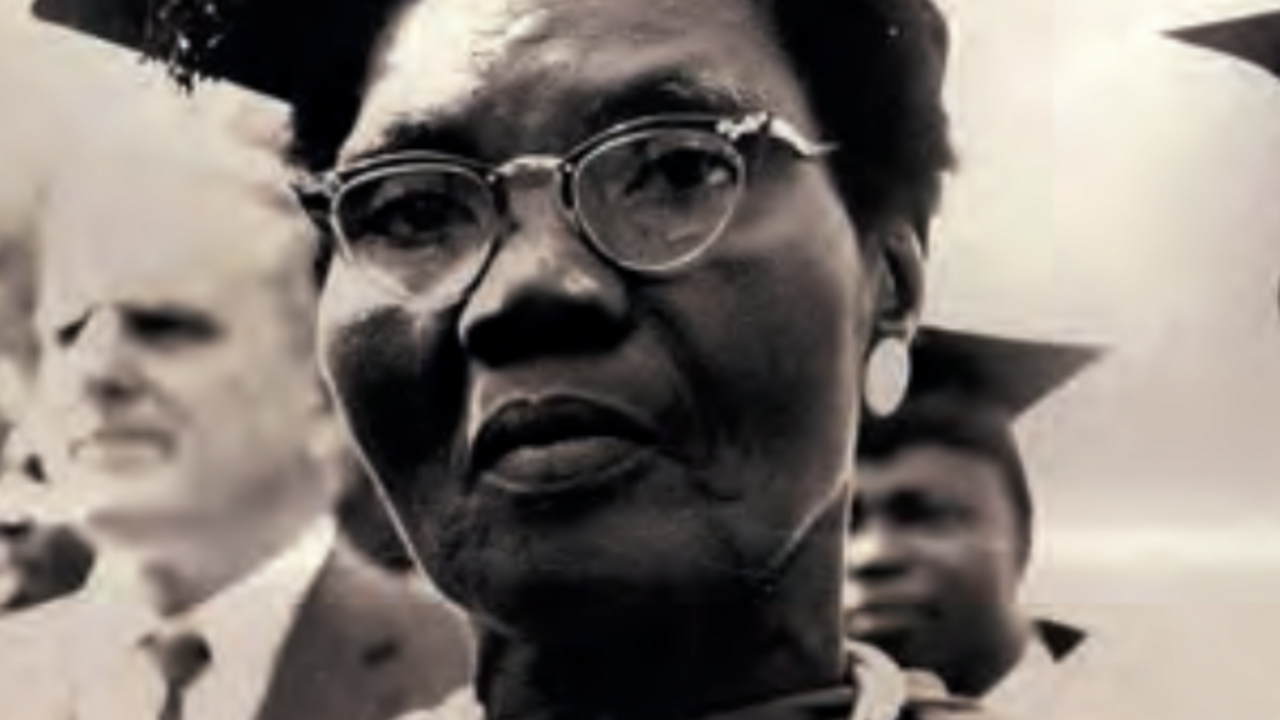Nigeria: Funmilayo Ransome-Kuti, a proud and fearless Yoruba
Audio 02:24
Funmilayo Ransome-Kuti.
© CC-BY-SA-3.0 / Unesco
By: Moïse Gomis Follow
6 mins
Funmilayo Ransome-Kuti was Nigeria's first feminist figure during the first half of the 20th century.
A political leader, she stood up against the injustices done to women in her region before working for the independence of her country.
Married to a teacher and Anglican reverend, Funmilayo Ransome-Kuti broke free from the conventions of the time.
She becomes a public figure while raising her four children, including the famous musician and singer Fela.
Advertising
"
Knowing how to be respected.
This slogan sums up the life of Funmilayo Ransome-Kuti. Born in 1900, this Yoruba is the first girl from the colony of Nigeria to attend school. After studying in England, Funmilayo Ransome-Kuti launched the first women's political organizations. For Nike Ransome-Kuti, his grandmother remains a model. “
I think she was a feminist but not in the most modern sense. You know she was just a woman and in Yoruba women are very strong personalities. My grandmother was a strong character. She was disciplined, courageous, strong-minded and with an iron will. She was ready to die for her ideas
. "
Funmilayo Ransome-Kuti denounces the special tax on vendors in the market in his town Abeokuta. December 1947, at the head of tens of thousands of women, Funmilayo besieges the Alake Palace, the traditional chief. Oba Ladipo Ademola II abdicates despite the support of the British. “
In traditional Yoruba culture, you kneel to greet an elderly person,”
continues Nike Ransome-Kuti.
. If you are a woman or if you are a [young] man, you are supposed to lie on the ground. This gesture is called "Idobale". She was against it. And she told me at the time that she didn't kneel in front of anyone because she felt that we were all equal, and bowing down was a way of submitting to someone's will.
"
Funmilayo Ransome-Kuti's voice carries weight. Thanks to her, Nigerians obtained the right to vote in 1951. Then Nigeria acquired its independence in 1960. In 1977, her son, singer Fela, defied the dictatorship of Olusegun Obasanjo. 1,000 soldiers surrounded and then attacked the Kuti family home. Funmilayo is molested and then defenestrated from the second floor of the building. The matriarch succumbed to her injuries the following year.
“
When her body was lifted, there were hundreds of people in the morgue,” said
Yeni Lawson Kuti, Fela's eldest daughter
.
I thought it was because of my father.
But when we arrived in Abeokuta, the market vendors were all standing, they were waiting in front of the doors of Abeokuta.
They were thousands, thousands to walk and accompany my grandmother's coffin to the school where the funeral vigil was held.
"
Newsletter
Receive all international news directly in your mailbox
I subscribe
Follow all the international news by downloading the RFI application
google-play-badge_FR
Nigeria
Women
Story

